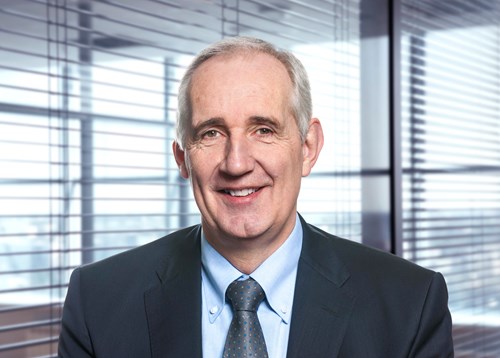Interim dividend at Balfour Beatty now 43% higher than pre-pandemic level
Balfour Beatty has increased its interim dividend by 43% compared to 2019 after it recovered from a £14 million loss last year to record underlying profit from operations of £60m.

Leo Quinn
Half-year financial results for the firm revealed a slight rise in turnover to £4.154m, compared with £4.118m for the same period last year, while its “strong” cash performance continued with average net cash at £611m (FY 2020: £527m).
The firm said a “strong” support services performance benefited from end of contract gains and exit from gas and water sector, but construction services have been negatively impacted by private sector property projects in central London.
The group’s order book of £16.1 billion is only slightly down on the £16.4bn from six months previous, while the UK Construction order book stands at £6.2bn, driven largely by infrastructure projects.
Balfour Beatty’s interim dividend at 3.0 pence is 43% higher than pre-pandemic level (2020: Nil; 2019: 2.1 pence).
Leo Quinn, Balfour Beatty group chief executive, said: “We continue to reshape Balfour Beatty to play to its strengths. These include leading capability in markets where governments are committed to long-term infrastructure programmes. It means choosing to exclude regions and sectors which cannot provide profitable, low risk growth, in favour of those that can. Our priority is on executing our already strong order book which will drive attractive cash generation and returns.
“Today, we are substantially increasing our interim dividend on the pre-pandemic level and raising margin targets in Support Services.”
Balfour Beatty has also announced today that it has joined the UN-backed Race To Zero campaign.
This alliance sees non-state actors across the global economy committing to take rigorous and immediate action to halve emissions by 2030 and achieve net zero emissions by 2050 at the latest, in line with the global race to limit rising temperatures to 1.5°C.
This latest pledge builds on Balfour Beatty’s Group-wide Sustainability strategy, ‘Building New Futures’, in which the company committed to minimising the environmental impact of its operations across the UK, US and Hong Kong. Having already reduced its carbon emissions by 54.7% since 2010, the company has now committed to halving its 2020 carbon emissions by 2030, including scope 3 emissions.
As part of its journey to build a better, more sustainable future, the company is collating its carbon data for the official submission to the Science Based Target Initiative and is already taking action to achieve both its 2030 target and 2040 ambition to Go Beyond Net Zero Carbon; introducing electric vehicles and plant and implementing the first-of-its-kind retrofit exhaust technology to reduce its carbon emissions.
The company also continually innovates and collaborates with its industry partners to develop new technologies such as Econet, a state-of-the-art technology to manage the power supply of site compounds reducing carbon emissions by up to 80%, and a carbon calculator which can automatically calculate embodied carbon from building information models.
Leo Quinn added: “Today we’re joining the UN-backed Race To Zero campaign. On a global basis it reflects our own commitment: not only to move our business forward strongly and sustainably, but also to deploy Balfour Beatty’s green capabilities to help deliver the infrastructure for a net zero world.”























